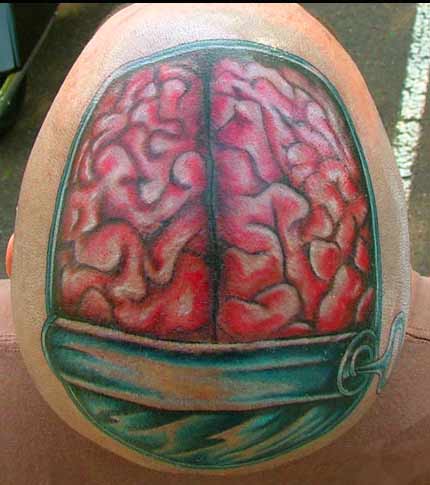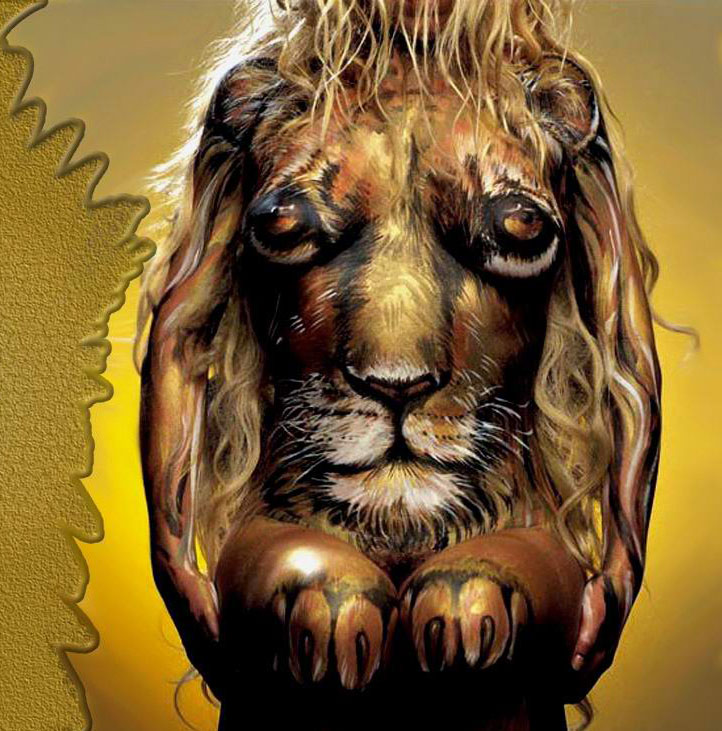Many of us think we are in perfect control of what our minds believe to be true or false. But what happens when your mind is unable to determine what is impossible? Imagine what would happen if your mind suddenly overrides your conviction that something is false.

That is exactly how the mind perceives optical illusions! So just how do these intriguing illusions work? Your brain is constantly interpreting everything you see, feel and hear.

You rely on your mind for everything you do in your life from complex decision making and logic to the simplest tasks such as eating with a spoon. We take its incredible abilities for granted.

So how are we fooled? Well, it's because we learn to process certain images automatically. This is because our early development "hard wired" our perceptions. As a result, we learn to subconsciously interpret the images we see every day.

As a result, our minds learn to recognize and automatically process images and associate them with meaning and identity. For instance, young children learn to distinguish unique features in individual faces early in life. The same is true for animals. Each species can detect subtle differences in their peers that can not be detected by other types of animals.

However, optical illusions defy this hard wiring of logic, creating numerous camouflage, ambiguous, and flip flop illusions.

Because of this, no matter what type the illusion may be, it relies on the mind struggling with image overcoming logic patterns ingrained in our thought process.

The human brain is very capable of processing millions of bits of information simultaneously. Normally, this process occurs without a hitch, but optical illusions are images that are presented in such a way that deprives our minds eye of enough information to prevent it from processing it correctly.

Because of these automatic interpretations, we often see objects in otherwise random arrangements as something else entirely. In the case of the the picture above, we assume we see the shape of a spider emerging from the building.

One type of optical illusion is called a "flip flop" illusion. Although the dynamics of this type of illusion is unclear, they are truly intriguing.

The meaning of this image flip flops between a skull and a couple sitting at a table. This 1920's French postcard image titled "L'Amour de Peirrot" was a popular motif throughout the 20th century and inspired such artists as surrealist Salvador Dali. The artist who created the image, ironically, is unknown.

A scene's context and what you expect to happen can dramatically influence your perception in many fundamental ways. Over the years, there have been many studies demonstrating how a person's perception of an event can be dynamically controlled through priming and context.

A major contributing factor to why illusions occur is attributed to "priming" Priming is suggestion that influences judgments and in fact, the entire marketing industry relies on this type of influence in their advertising.

Although scientists can describe the different types of perceptual priming, there is still no real understanding on any level of why these perceptions occur.

Architecture has its share of illusions as well. In fact illusions have been used in architecture thousands of years and an example of that can be seen in the Parthenon. Ironically, the Parthenon contains no straight lines in its architecture.

There are seven eagles in this painting, can you find them all? As in this type of an illusion, the images are hard to see at first, but after your mind's eye sees them, the brain reorganizes the information so you are able to see them more easily in the future.

Imagine trying to dance on this floor.
Of course, with the advent of the technological age, the venues for our human expression have multiplied. Here are examples of new ways we have discovered to play these delightfully visual pranks on each others minds.
Body Art

Body art is a fairly new form of optical illusion. In this image, the hand is easy to see, but the mind ignores it and focuses on the painted image.

This Russian body art is amazing!!


Whatever the reason, optical illusions will continue to amaze and fascinate us as well as make us wonder just how they really do manage to fool us.
More Optical Illusions






Tidak ada komentar:
Posting Komentar